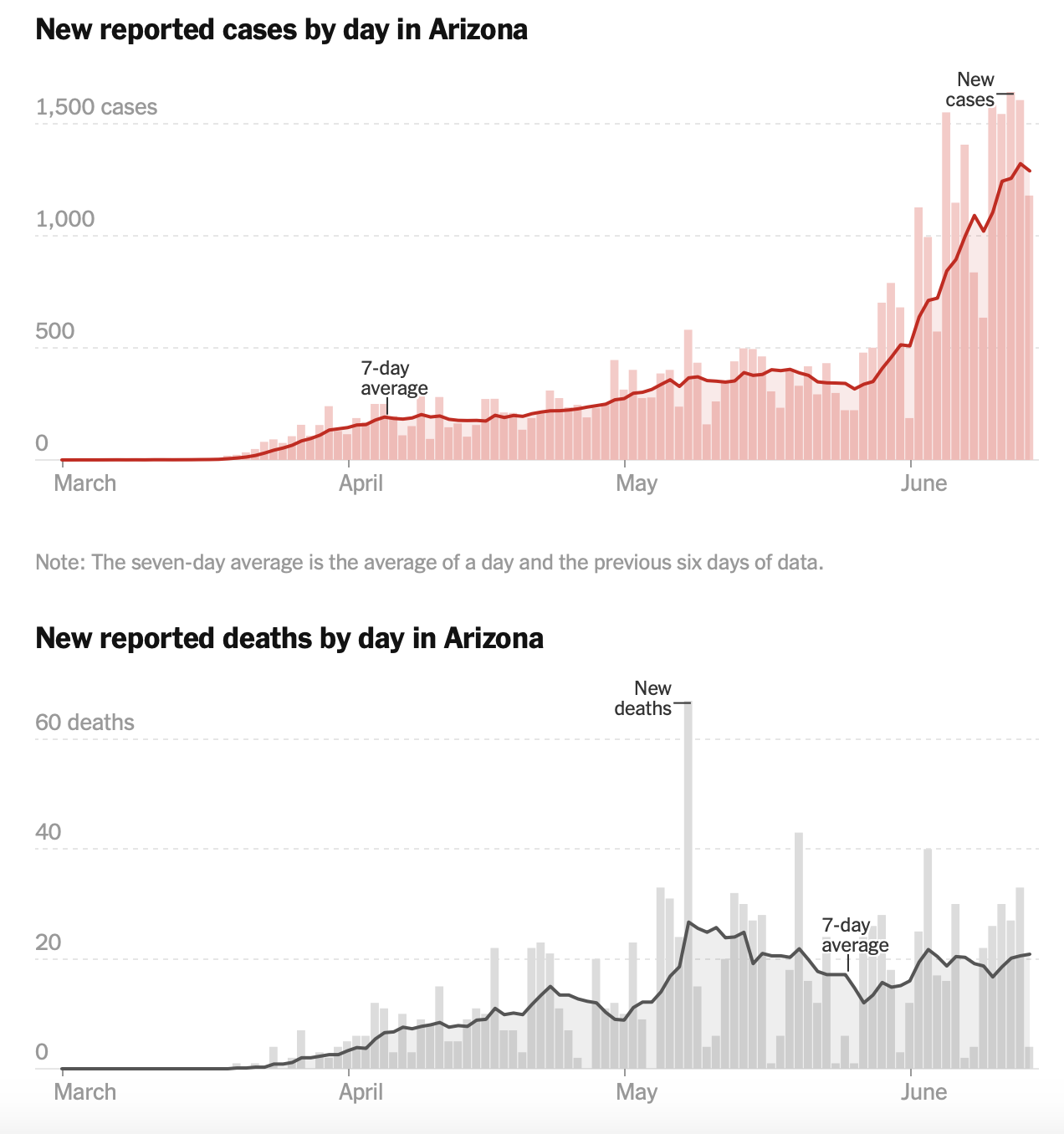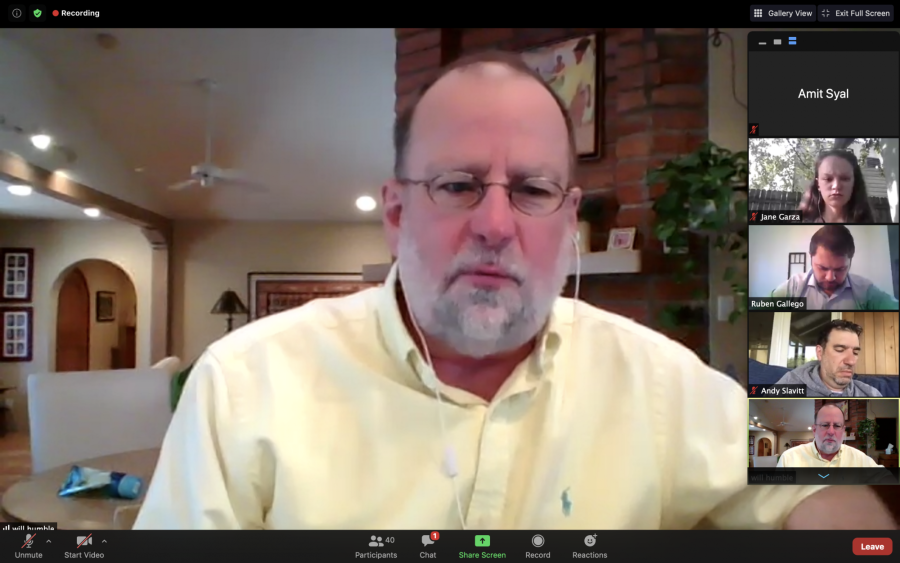On Monday, June 15, Congressman Ruben Gallego and two health experts Will Humble and Andy Slavitt, held a press conference to discuss the rising trend in COVID-19 cases in Arizona.
Humble is the current director of the Arizona Public Health Association and former director of the Arizona Department of Health Services, preceding the current director Dr. Cara Christ. Slavitt is the former acting administrator of the Centers for Medicare and Medicaid Services under former President Barack Obama and the current host of the podcast “In the Bubble.”
As of June 15, Arizona has about 36,000 confirmed cases of COVID-19 alongside about 1,200 deaths, but the concern comes from the recent spike in cases. According to NPR, Arizona is averaging about 1,245 cases per day for the last week, which is a 145% increase compared to two weeks ago.
“The virus by its biology … the way it works is to find places where it hasn’t been before, to find hosts, to find people, to find locations. I think it’s really important to say this is not anybody’s fault, but the virus’,” Slavitt said.

Gov. Doug Ducey officially lifted stay-at-home orders on May 15. About 10 days after, Arizona started to see an increasing trend in cases on May 26, which confirms the roughly 10-14 day lag between being infected and the case being reported by the state health department.
“The people of Arizona did a terrific job in April and the first part of May staying at home. They made a lot of sacrifices, but when we came out of the stay-at-home order, we moved into a completely voluntary system,” Humble said. “There were no compliance measures in place to ensure that people who cheat the system are held accountable for that.”
Banner Health, the largest healthcare system in the entire state, tweeted on June 8, “We have seen a steady climb of COVID-19 cases in Arizona over the last two weeks. This trend is concerning to us, and also correlates with a rise in cases that we are seeing in our hospital ICUs.”
As of June 15, Arizona has had a total of 3,570 hospitalizations, which is roughly 10% of the total cases. Interestingly enough, the age group with the most number of hospitalizations — after the 65 and older group — is the 20-44 age group. A total of 1,555 hospitalizations have come from the 65 and older group, but 807 of them have come in the 20-44 group, followed by 734 in the 55-64 group and finally 610 in the 45-54 age group.
RELATED: Arizona sees increased ICU usage, upward trend of COVID-19 cases
Health experts like Humble want to see individual levels of government given the ability to make more decisions regarding how to take decisive action against the spread of the virus.
“I’m not talking about Draconian measures, I’m just saying let city councils who are held accountable to their own jurisdiction, to their own voters, let them make some decisions for their own communities,” Humble said.
Slavitt and Humble both recognize the scientific data that has bolstered the idea that masks could help slow the spread of the virus. A recent study by the National Academy of Sciences revealed that the “wearing of face masks in public corresponds to the most effective means to prevent interhuman transmission.”
Another study by BMJ, a high-impact medical research journal, found that wearing a mask “was 79% effective at curbing transmission before symptoms emerged in the first person infected, but it wasn’t protective once symptoms had developed.”
At the end of the press conference, Gallego said, “To the governor, it’s time for you to step up and really do it the Arizona way like you want to say. Tough leadership will get us some great results.”
Follow Amit Syal on Twitter









